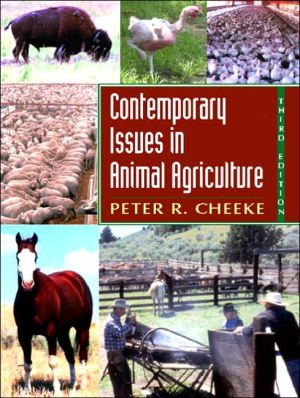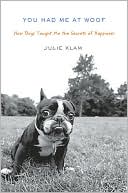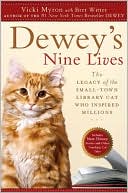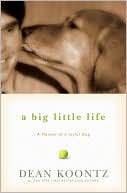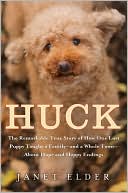Contemporary Issues in Animal Agriculture
Food quality and safety. Bioethics.\ Animal welfare and animal rights. Biotechnology.\ Environmental concerns and human health issues.\ Contemporary Issues in Animal Agriculture, Third Edition discusses some of the major controversial issues impacting animal production. The author critically evaluates societal concerns, presents several points of view, and points the way towards an acceptable middle ground that can accommodate the diverse viewpoints of society, including those of the...
Search in google:
This book, previously titled Impacts of Livestock Production, objectively deals with a number of important issues that are affecting livestock production and the public perception of animal production on a global basis. Some of these issues include consumption of animal products and human health, global warming, biotechnology and animal rights.The volume examines domestication of animals and their contributions to human welfare, animal products in the human diet, principles of animal nutrition and the scientific feeding of livestock, feed additives and growth promotants in animal production, environmental concerns involving livestock production, livestock grazing and rangelands issues, industrialization and globalization of animal agriculture, food quality and safety issues, bioethics, animal welfare, animal rights, and biotechnology issues, and livestock integration into sustainable resource utilization.For anyone involved with animal and poultry science. Booknews Cheeke (animal sciences, Oregon State University) discusses some of the major controversial issues impacting animal production, such as animal products in the human diet, feed additives and growth promotants, environmental concerns, rangeland issues, and animal rights. The first edition was published as (1993). Annotation c. by Book News, Inc., Portland, Or.
The objective of this book is to discuss some of the major controversial issues impacting animal production. Animal agriculture and animal scientists face many controversies and challenges. A growing segment of society views livestock production as unethical and inhumane. Until recently, animal scientists either ignored these concerns or attributed them to an inconsequential fringe element of society. It is beginning to sink in that societal concerns are legitimate, are here to stay, and will increase. Concerns about human exploitation of animals for food production and biomedical research have become mainstream. Food safety issues such as "mad cow disease" and E. coli contamination of meat make the headlines regularly. There is a steadily growing vegetarian movement based on the viewpoint that meat consumption is bad for one's health. The animal rights movement is opposed to the raising of domestic animals for any purpose. In the western United States, grazing of livestock on public lands is a major controversial issue. Air and water pollution, global warming, riparian zones, endangered species—the list goes on and on. Animal science graduates will be dealing with these types of issues, even to the extent of justifying to friends and relatives what they do for a living. In my opinion, it is critical that students have exposure to these contemporary issues during their education, rather than being hit with them as they enter "the real world."\ There is currently great interest by society at large in the environment. More benign systems of resource utilization in agriculture, forestry, and other primary extractive industries are being sought. My intention has been to discuss these issues, particularly as they relate to animal production, in a global context. I have discussed these issues in a holistic manner, showing how animal production and other aspects of agriculture are integrated into the larger society as a whole.\ Contemporary issues exist because there is no right answer. There is more than one valid point of view; otherwise there wouldn't be an issue. I have endeavored to critically evaluate societal concerns about various aspects of modern animal production and to present several points of view. One of my motivations for writing this book is my belief that the resolution of contentious issues is one of the major challenges facing the discipline of animal science. Ecological and environmental issues, as well as nutritional involvement in degenerative disease and aging, emerged as significant issues in the latter part of the twentieth century and will continue at the forefront of public concern in the twenty-first century. Agricultural students must be armed with thinking skills and a broad perspective to meet these ever-increasing challenges. We must be able to justify to society what we are doing, why we're doing it, and what consequences for the environment and food safety our actions produce. The sustainability of animal science and livestock production as careers will depend on how well the next generation meets these challenges. My hope is that this book will help point the way toward an acceptable middle ground that can accommodate the diverse viewpoints of society, including those of the livestock industry.\ Some animal scientists would prefer to ignore controversial issues and just hope they will go away. They think it is a disservice to "our side" to give publicity to the ideas of "the enemy" such as environmentalists. I have to admit somewhat hesitantly that as a result of my research and contemplation in preparation of this book, my own views and sympathies have moved "to the left" a bit. I think that animal agriculture has a lot of room for improvement.\ Another motivation for writing this book has been my perception that many animal scientists have given the knee-jerk response to societal concerns. I have noted colleagues dismissing concerns about cholesterol, meat consumption, and coronary heart disease, with comments about "so-called medical research" and "so-called medical authorities," while never having read a scientific paper on the subject themselves! My intention is that this book will provide a framework on which to build a reasoned and rational discussion of contemporary issues. If there are some things wrong with how we raise animals or with animal products, let's face up to it and deal with it.\ I have endeavored to be reasonably open-minded and noninflammatory, without being bland. It is typical when dealing with controversial subjects to soften the blow by using words like "perhaps, maybe, might be, could be," and so on. I've tried to keep this to a minimum. I hope that a bit of fire and brimstone comes through on some topics. Some terms such as "factory farming" are inflammatory and "value-laden" to some people. As the old saying goes, if it looks like a duck, walks like a duck, and quacks like a duck, then it's probably a duck!\ I have tried to write in clear and easily understood prose. There sometimes seems to be a perception among students and professors that a text should be challenging and difficult to read, as if to imply that a text is more valid and profound if incomprehensible than one that is easily understood. On the other hand, a book should expand the readers horizons, including his or her vocabulary. I have attempted to accomplish both goals, to be mind-expanding and lucid.\ Thus I hope that this book will contribute to expanding the horizons of ag students, and to instill an appreciation for the validity of other points of view. I've tried to avoid falling into the trap of us vs. them. There is a reasonable middle ground. There is no point in catering to either extreme by just "preaching to the choir." It does no good to reinforce existing agrarian prejudices. I hope I have challenged ag students to appreciate the validity of some of society's concerns about livestock production. Their future role will be to address these concerns, rather than just attempt to debunk them. I hope to do justice to the following mission statement from my university: "The highest aspiration of a university is to free people's minds from ignorance, prejudice, and provincialism and to stimulate a lasting attitude of inquiry."\ I have cited recent literature extensively These citations provide an entry into the scientific literature for those who want further information and will expose undergraduate students to scientific literature as contrasted with the popular press. They will gain an appreciation for the importance of grey, as opposed to black and white. There are no magic answers. Judgment and interpretation are important components of rational inquiry.\ I have noted that colleagues who have complimented the first two editions of this text tend to be young, while often the "old guard" tends to regard my ideas as a touch ludicrous. My perception is that many students today are "ahead of the curve" in their appreciation of natural resource and environmental issues, and that animal science professors have some catching up to do. A "don't give an inch" defense of modern animal production techniques won't resonate with many students. They know better.\ Each chapter has been written so that it can more or less stand alone. Chapter 4 is included not only because my primary area of interest is nutrition, but also because some knowledge of nutritional principles is desirable to deal effectively with issues such as "chemicals and hormones as feed additives," why beef cattle have saturated fat, why cattle and not chickens have been implicated in global warming, and so on.\ Some issues, such as the relationships of dietary fatty acids and cholesterol to coronary heart disease and cancer, are very complex and difficult to present to a diverse audience without the perils of oversimplification, or, conversely, being overly technical and incomprehensible. I have cited sufficient recent publications to provide an entry to the literature for those who wish further information. The fairly extensive citation of recent research may reduce readability somewhat but is essential to validate statements that deal with controversial issues.\ I hope the book is interesting. I've tried to pack in all sorts of interesting things, such as the recent discovery of a previously unrecorded species of wild cow in Vietnam (Chapter 1) to the role of the white cliffs of Dover in regulation of the global environment (Chapter 11).\ I thank colleagues who have contributed photos and ideas. I am especially indebted to Helen Chesbrough for her Herculean efforts in typing and preparing the manuscript. Colleagues Steve Davis and Candace Croney reviewed Chapter 10; I should also acknowledge Steve Davis for critiquing the entire text during preparation of the second edition. I also thank those who have commented favorably to me on the first two editions; a little bit of positive reinforcement goes a long way with authors!\ A final thought regarding this book is stimulated by the words of Swinnerton-Dyer (Nature 373:186, 1995):\ Most scientists . . . reach a moment at which they know they will never have another worthwhile idea, and the only result of their continuing to do research after that point is to clog up the learned journals with papers that no one should be expected to read. That may be the moment to write a book pulling one's subject together in a lucid way.\ I have reached the former condition, and I hope I have succeeded in the latter!\ My experience in writing books is that the job is never done. There comes a time to wrap things up, even if further improvement is possible. I guess that's why there will probably be a fourth edition!
1. Domestication of Animals and Their Contributions to Human Welfare. 2. Animal Products in the Human Diet. 3. Feed vs. Food: Do Livestock Compete with Humans for Food Resources? 4. Principles of Animal Nutrition and the Scientific Feeding of Livestock. 5. Feed Additives and Growth Promotants in Animal Production. 6. Environmental Concerns Involving Livestock Production. 7. Livestock Grazing and Rangeland Issues. 8. Industrialization, Corporatization and Globalization of Animal Agriculture. 9. Food Quality and Safety Issues. 10. Bioethics, Animal Welfare, Animal Rights, and Biotechnology Issues. 11. Livestock Integration into Sustainable Resource Utilization.
\ BooknewsCheeke (animal sciences, Oregon State University) discusses some of the major controversial issues impacting animal production, such as animal products in the human diet, feed additives and growth promotants, environmental concerns, rangeland issues, and animal rights. The first edition was published as (1993). Annotation c. by Book News, Inc., Portland, Or.\ \
